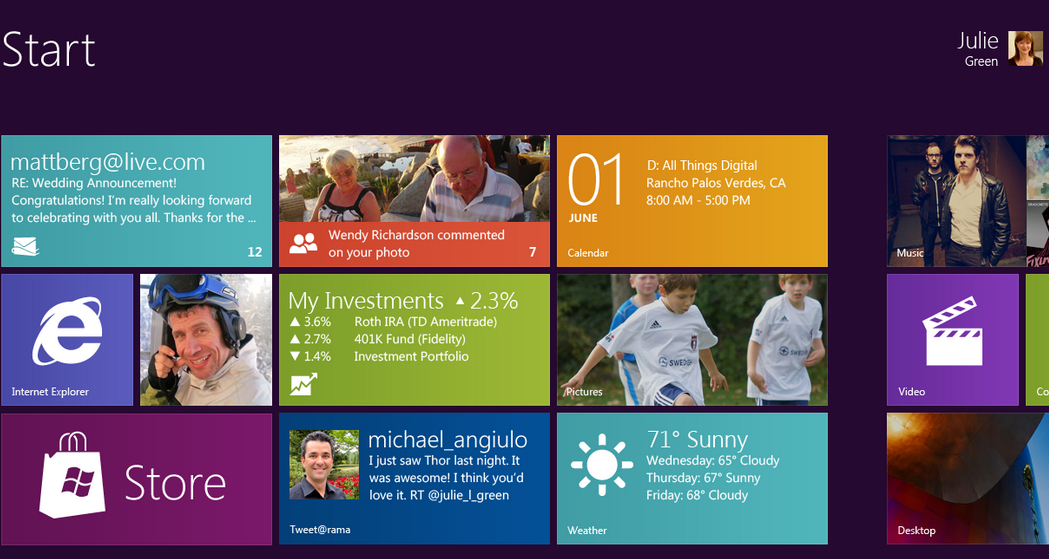Impending crisis for Microsoft: Office tablet pricing


Microsoft is busy up in Redmond getting Windows 8 ready for the masses. The company has taken a lot of heat from the press for being late to the tablet party, even though it invented the tablet a decade ago. The Tablet PC never impacted the market, as the market apparently wanted nothing to do with full computers and all the price, bulk, and bloated software that came with them.
That is being addressed with the ARM version of Windows 8 that is being specifically created to take another pass at the tablet. The Metro UI of Windows 8 looks pretty good for touch tablets, and coupled with the ARM architecture the new tablets may be able to seriously break into the tablet space.
During frequent conversations I have with those holding off on buying a tablet to wait for these Windows 8 slates next year, the primary reason I am given is to run a full (not mobile) OS, along with the need to run Microsoft Office. The stated desire is to make no compromises to use a tablet over using a PC. Windows 8 is exciting these folks and they are not buying tablets now to wait for them.
The reality of what Microsoft eventually brings to the tablet may not be quite what these folks expect. The ARM version of Windows 8 won't likely be the full desktop version of the OS, due to the difference in the hardware for tablets. There won't be the large storage of a PC on the tablets for one thing, and that alone will force the ARM version of Windows 8 to be slimmer than its bigger OS. Microsoft is putting a lot of development effort into the ARM version, and I am confident it will handle this properly.
Where the big difference will lie between the full and tablet versions of Windows 8 will be the apps. Mobile apps must be free of the bloat that is common in desktop versions of similar apps, and that means the tablet (ARM) version of the Office apps will need to be "lite" versions. That means less features, and designed from the ground up to be touch optimized. This special version of Office for the tablet will need to fall between the full desktop version and the old puny Windows Mobile version of old. Tablet versions don't need the full feature set of the former but needs a lot more than that of the latter.
Microsoft should be able to pull off an adequate tablet version of the main Office apps, that shouldn't be a big concern. What is up in the air is the pricing for this, and that's why the rumored iPad version of Office is so significant. It makes sense that tablet versions, iPad or Windows 8, should be priced competitively to similar apps in the app stores. Too highly priced and the Office apps will be poorly received and Microsoft will not compete well. That will result in the failure to recoup the heavy development/support costs this suite will require.
While it makes sense for the iPad/Windows 8 tablet Office apps to be competitively priced, the dilemma for Microsoft is how this affects the bottom line for its cash cow, desktop Office. If Windows 8 tablet users discover they don't need all the fluff in the full suite, a very real possibility, Microsoft could see a significant loss of Office revenue to the tablet side. This would be a permanent desertion, as once you realize a $10 app is as good for your needs as a $100- $200 app, it is game over.
Microsoft may be planning on this rumored iPad version of Office as a dry run for its upcoming Window 8 tablet version. That may backfire if so, as it could force a much cheaper price point for Window 8. I can see the Apple ads already-- $10 for Word for iPad, or $30 for Windows tablet?
This looming pricing dilemma is going to be one of the biggest threats Microsoft has had to deal with in a long time. It is unusual for a company to confront the damage it might do to a major segment of its own business, but that's what it is facing. The company can't (or shouldn't) release a version of tablet apps for the competition (iPad) at higher than competitive prices, but pricing them properly could permanently affect a big portion of its core business. There should be some Microsoft executives having some late-night meetings in Redmond dealing with this.
See also:
- Windows 8 dilemma: Consumers don't buy tablets for the OS
- Why I bought an iPad 2
- HP TouchPad: Everything you want to know
- Review: Motorola XOOM, brimming with unrealized potential
- Hands-on review: Samsung Galaxy Tab 10.1
- Hands on with first 7-inch Honeycomb tablet: Acer A100
- Lenovo IdeaPad K1 tablet: First impressions
- ThinkPad Tablet: Ready for the boardroom
- ThinkPad Tablet vs. Samsung Galaxy Tab 10.1 as laptop replacement